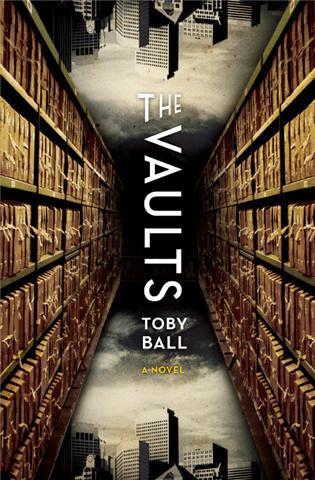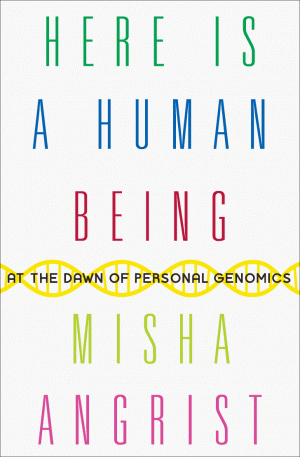Toby Ball appeared on The Bat Segundo Show #380. He is most recently the author of The Vaults.
Listen: Play in new window | Download
Condition of Mr. Segundo: Spilling green ink all over the public records.
Author: Toby Ball
Subjects Discussed: The descriptive connection between sound and voice, Ball’s background in teaching, envisioning a scene before writing it, devising a 1935 parallel universe, alternative forms of photography, prethinking information technology, children who intrude upon the conversation and ask about the microphones, telling an old-fashioned pulp yarn, the Berlin Document Center, the Nora chapters as placeholders within The Vaults, the frantic qualities of pulp literature, characters locked in location, Hard Case Crime, Nicholson Baker’s Room Temperature, detecting another person’s typing from observing the strokes, keylogging, Suge Knight as inspiration, the Anti-Subversive Unit inspired by 9/11 propaganda, designing a three book arc, Philip K. Dick’s The Man in the High Castle, marijuana cigarettes, Hearst and the criminalization of marijuana, mentioning alternative countries (Poland, et al.) instead of the key players in World War II, the city as physical space, ideological information, character life that comes from specific limitations in vernacular, turning a preexisting rumor into narrative fodder, working at Congressional Quarterly, Red Henry’s mistress reading Nietzsche, and tight consequential corners.
EXCERPT FROM SHOW:
 Correspondent: It is interesting how the voice — somebody’s voice — tends to be imposing. More so than the bigness of Big Henry and the like. It’s very interesting to me that sound seems to be the linchpin. Particularly because the technology in this book is rather interesting. I mean, here we are roughly around 1935. A little parallel universe. And we don’t really have motion pictures. We have some possible version of photography with the replacement system that comes in the Vaults. And that’s why it is very interesting to me why sound is such an important quality. It’s almost as if sound in your world matters more than image to a large degree.
Correspondent: It is interesting how the voice — somebody’s voice — tends to be imposing. More so than the bigness of Big Henry and the like. It’s very interesting to me that sound seems to be the linchpin. Particularly because the technology in this book is rather interesting. I mean, here we are roughly around 1935. A little parallel universe. And we don’t really have motion pictures. We have some possible version of photography with the replacement system that comes in the Vaults. And that’s why it is very interesting to me why sound is such an important quality. It’s almost as if sound in your world matters more than image to a large degree.
Ball: That’s an interesting idea. And I think a lot of the book is about information. Both the information that is overt and then there’s a certain amount of information that has to be gleaned from other pieces of information. And I think that the idea that people can assert powers in ways other than the physical or through violence or through having political power or whatever sometimes comes through. Certainly with your ability to dominate things vocally. Maybe not even verbally. You don’t have to necessarily have a great way with words. But if you can take up more space around you than the other person to serve as an alpha male thing, I guess.
Correspondent: Well, did you prethink any of the technology in the book? Or for that matter any of the history? We do have allusions to the Great War. We also have the Birthday Party Massacre, which is both a funny and a grisly idea. And it makes me wonder whether you had any masterplan for this alternative history or you were inventing things and filling in the gaps as you went along?
Ball: Well, what I was most interested in, I think, was how do you organize information. And because of that, it had to be before a certain period. Say the 1960s. And moving it back to the ’30s and combining it with these ideas we have about the ’20s and ’30s gangs, and things like that, I think that that was the first step in doing it. But I also wanted to create a complicated and…
[Two children walk up to the table and start staring intently at the microphones.]
Child #1: Where did you get that?
Correspondent: Well, hi.
Ball: Hi.
Correspondent: There’s a…
Ball: The microphones?
Correspondent: Yes, the microphones. You can get these microphones at just about any audio place. We have a child here who’s decided to…(laughs). Hi. What’s your name?
Child #2: (more aggressively) Where’d you get that?
Correspondent: Well, we got these through — I got these through an audio supplier. So.
Ball: Pretty cool.
Correspondent: But anyway, you were saying?
Ball: Well…
Correspondent: We have an audience. (laughs)
Ball: We have an audience of two. So from there, while I kind of wrote and sort of developed some more things I was interested in writing about, I think that’s where things kind of move on. What’s the importance of having accurate information? What’s the value of that? What can you get by taking discreet facts? And simply by organizing them, by insuring their purity, how does that in itself become information? And to try and combine that with — you know, I think there’s a certain fun aspect to the ’20s and ’30s. Where you can get this noir-y feel abut things. To a certain extent, the book has to be fun too. You have to want to read it, and the atmosphere, and things like that. Does that kind of answer your question?
Correspondent: It sort of does. I think what I’m also kind of curious about — since you are talking about information as a starting point, when did you drift off this focus on information and more into just telling a good old-fashioned pulp yarn?
Child #1: (still enraptured by microphones) Do those really work?
Correspondent: Yes, they do.
Ball: Yup, they work.
The Bat Segundo Show #380: Toby Ball (Download MP3)



